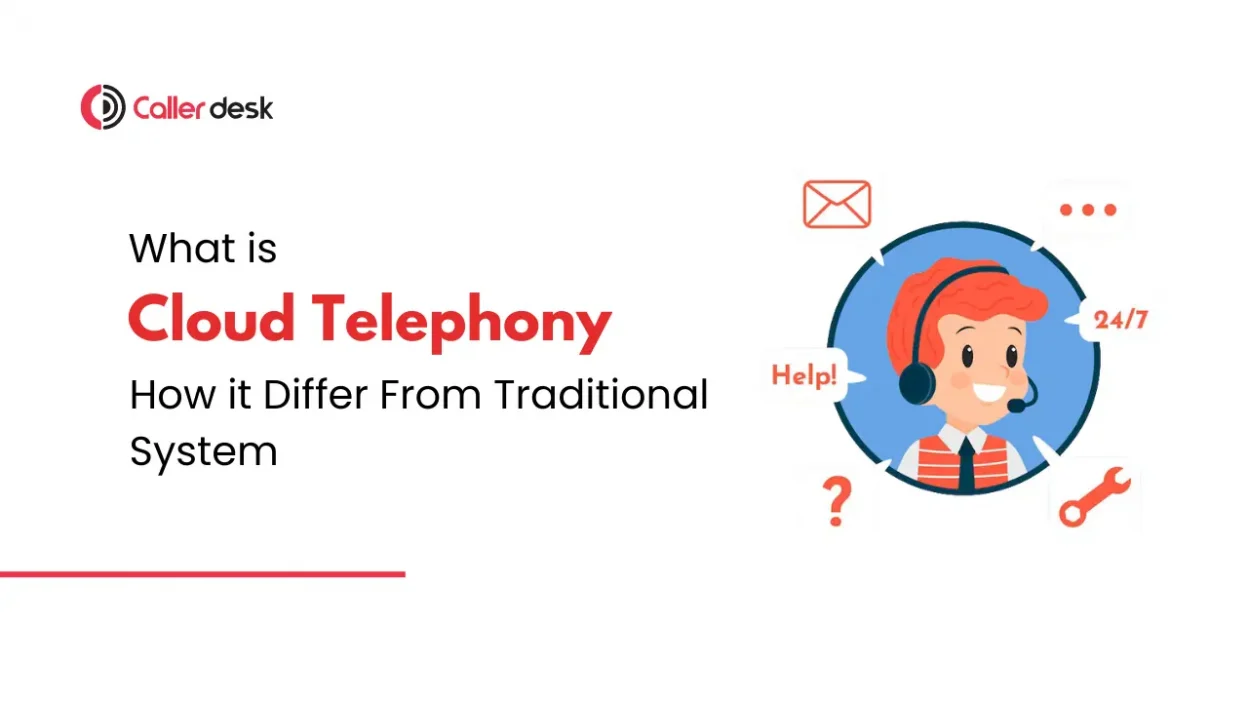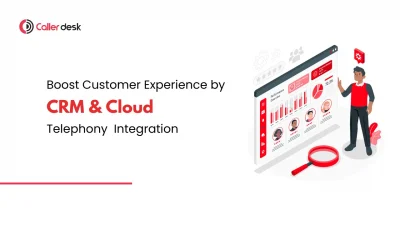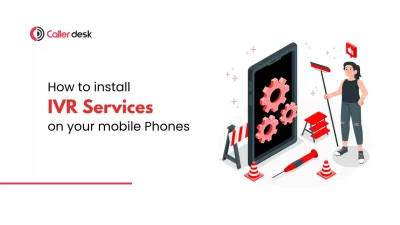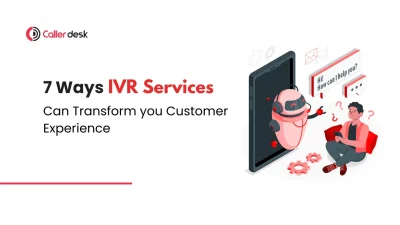Is your call center still running on traditional phone systems? If so, you might be missing out on huge cost savings, better flexibility, and smoother operations.
More than 70% of call centers worldwide are now switching to cloud-based phone systems—and for good reason. Cloud telephony isn’t just a trend; it’s a game-changer for businesses looking to scale, cut costs, and improve customer experience.
But how does it really compare to traditional phone systems? In this blog, we’ll break down the key differences in cost, scalability, performance, maintenance, and security—so you can decide which is best for your business.
What is Cloud Telephony
Cloud telephony, also called a cloud phone system, is a modern way for businesses to manage calls, messages, and other communications over the internet. Unlike traditional phone systems that require physical wires and bulky equipment, a cloud-based call center operates on remote servers. This makes it easier to set up, manage, and expand as needed.
Key Features of Cloud Telephony
- Scalability – Easily add or remove users based on business needs without spending on extra hardware.
- Integration – Connect your phone system with tools like CRM and helpdesk software to keep everything in sync.
- Remote Access – Work from anywhere! Employees can handle calls as long as they have an internet connection, making remote work more efficient.
For businesses in India, switching to cloud telephony can cut costs, improve customer service, and simplify communication.
What is a Traditional Phone System?
Traditional call centers, also known as PSTN (Public Switched Telephone Network), have been the foundation of voice communication for decades. They operate using physical infrastructure, such as copper wires, telephone exchanges, and switches, to connect calls.
While they offer stable and reliable call quality, they come with several limitations compared to modern cloud-based solutions.
Key Features of Traditional Phone System (PSTN)
- Reliability: Since PSTN uses dedicated phone lines, it ensures stable and consistent call connections.
- Physical Infrastructure: Requires substantial physical equipment and installation, making it less flexible compared to cloud systems.
- Limited Scalability: Adding or removing lines can be costly and time-consuming.
While PSTN has served businesses well for years, cloud-based Call Centers now offers a more flexible, cost-effective, and scalable alternative.
Comparison between Cloud and Traditional Phone Systems
1. Cost Comparison
Initial Costs
- Cloud Phone Systems:
- Lower Setup Costs: You only need basic IP phones or even just an app on your phone or computer.
- Minimal Hardware Investment: No need to buy expensive servers or PBX systems.
- Quick Setup: Most cloud telephony providers in India include setup costs in their subscription plans.
- Traditional Phone Systems:
- Expensive Hardware: You’ll need to buy physical servers, PBX systems, and landline connections.
- High Installation Costs: Setting up a traditional system requires professional installation, adding to your initial expenses.
Ongoing Costs
- Cloud Phone Service:
- Subscription-Based: You pay a fixed monthly or yearly fee, which covers everything—maintenance, updates, and customer support.
- Predictable Expenses: No surprise costs. Everything is included in your plan.
- Traditional Phone Systems:
- Maintenance Costs: You’ll need IT staff to fix issues, update software, and replace hardware over time.
- Software Licenses: You’ll pay separately for software updates and additional user licenses.
- Operational Expenses: More expensive because you need in-house IT support.
2. Flexibility and Scalability
- Cloud Telephony:
- Need more phone lines? You can add them instantly—no need to buy extra hardware.
- Works with CRM software, so your team can manage customer calls better.
- Lets your team work from anywhere—perfect for remote teams.
- Traditional Systems:
- Hard to expand—adding new phone lines takes time and money.
- Stuck in one place—your system only works in the office.
- Not good for remote work—employees must be in the office to make and receive calls.
3. Maintenance and Support
- Cloud Telephony:
- No need to worry—your service provider handles everything.
- 24/7 support—problems get fixed quickly.
- Automatic updates—you always get the latest features without extra cost.
- Traditional Systems:
- You have to fix everything—if something breaks, your IT team must handle it.
- Repairs take time and money—waiting for a technician can slow your business.
- No automatic updates—you must manually install upgrades.
4. Performance and Reliability
- Cloud Telephony:
- Uses strong internet networks to avoid downtime (no sudden call drops).
- Works well across different locations, so businesses with multiple offices benefit.
- Handles high call volumes without lag
- Traditional Systems:
- Good call quality—but only if the system is working properly.
- Hardware failures can cause major issues—if a machine stops working, calls stop too.
- Takes time to fix problems—you have to wait for repairs.
5. Security
- Cloud Telephony:
- Highly secure—service providers use encryption, firewalls, and monitoring to protect data.
- Regular security updates—your system stays safe from hackers.
- Follows privacy laws—CallerDesk meets DoT (Department of Telecommunications) regulations and is ISO 27001:2022 certified, ensuring top-level data security and privacy compliance as per government rules.
- Traditional Systems:
- Security is your job—you must buy firewalls and software to keep the system safe.
- If you don’t update security, your system is at risk.
- Physical theft is a problem—hardware can be stolen or damaged.
6. Suitability
- Cloud Telephony:
- Best for customer service—it includes call recording, call monitoring, and analytics.
- Scales easily—perfect for growing businesses.
- Supports remote teams—agents can work from anywhere.
- Traditional Systems:
- Good for businesses that don’t need advanced features.
- Not ideal for call centers—lacks real-time monitoring and cloud-based analytics.
- Limited flexibility—you’re tied to physical infrastructure.
Conclusion
Both cloud telephony and traditional phone systems have their benefits. Traditional systems offer control but come with higher costs and maintenance. On the other hand, a cloud call center is easier to manage, more secure, and cost-effective.
If you run a call center in India, switching to the cloud can save money and improve efficiency. Not sure which option is right for you? CallerDesk can help with the best cloud telephony solutions. Upgrade today and stay ahead of the competition!





